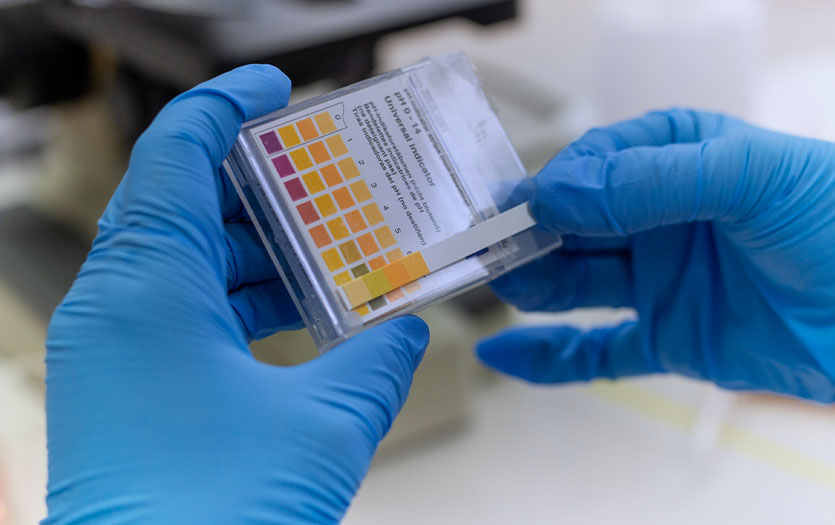
This post was written by Geoffrey Gordon, MD, PPG – Maternal-Fetal Medicine.
Diabetes mellitus, commonly called diabetes, is a condition that prevents the body from adequately moving sugar from the bloodstream into the body’s cells to use as energy. The hormone that helps transfer sugar is called insulin. Diabetes occurs when there is insufficient insulin, or the body does not correctly use the insulin produced.
The two classes of diabetes are gestational and pregestational. Gestational diabetes is diabetes that only occurs when a woman is pregnant. Pregestational diabetes is a form of diabetes that occurs before pregnancy. Commonly, pregestational diabetes is called Type 1 or Type 2 diabetes, depending on the cause of the high blood sugar. For this blog post, we will focus only on pregestational diabetes.
The risks of diabetes during pregnancy
Diabetes in pregnancy has many potential risks. Sugar that doesn't get removed from the bloodstream can increase complications for both mother and baby. Poorly controlled diabetes can increase the risk of several factors, including:
- Developmental abnormalities most commonly in the heart and spine
- Larger babies increase the risk of a cesarean delivery (C-section) or tearing during vaginal deliveries.
- Admission to the neonatal intensive care unit (NICU) to control blood sugars, breathing issues and jaundice
- The function of the placenta, which could lead to preeclampsia (a condition that causes high blood pressure and excessive protein in the urine) and preterm delivery
- An increased risk of stillbirth
Ways to decrease your risk
Proper management and control of diabetes before pregnancy can significantly reduce the risks to both mom and baby. Pre-pregnancy planning with your diabetes care team is critical. We recommend your fasting blood sugars be less than 95 mg/dl and that blood sugars checked two hours after each meal be 120 mg/dl or less. Hemoglobin A1C (a marker to assess how much extra sugar is in the bloodstream) should be less than 7%. Additionally, diabetes is often associated with obesity, so weight loss can improve pregnancy outcomes and the body's natural response to insulin.
Management and monitoring during pregnancy
The key to reducing pregnancy risks is keeping the mother's blood sugar levels as normal as possible. So, when pregnant, diabetes management often includes routine appointments and increased baby monitoring. This usually involves a detailed ultrasound of the baby's anatomy and size. Mothers with diabetes also receive a specialized ultrasound of the baby's heart called a fetal echocardiogram. As a woman's pregnancy progresses, often in the third trimester, their provider will closely monitor the baby's heart rate, movement and fluid levels. Utilizing these different types of monitoring methods can help decrease incidences of stillbirth.
Safe diabetes medications during pregnancy
It is important to understand that pregnancy hormones can increase blood sugar levels. Therefore, it's common for mothers with diabetes to start or increase their medication doses to control the condition as the pregnancy progresses. However, the newer diabetes medicines may not be appropriate during pregnancy, which is why most mothers with diabetes will need to take insulin. Insulin has been used in pregnancy for over 50 years. It is safe to take and does not cross the placenta. Other medications used during pregnancy can include metformin and glyburide. Metformin makes the body more responsive to insulin and can be taken with it. With that said, metformin does cross the placenta but hasn't been shown to cause harm to the baby. Glyburide makes the body release more of its insulin. However, you should not take glyburide and insulin together since they may cause blood sugars to drop dangerously low. If you have questions about specific medications during your pregnancy, please speak with your provider.
Pregnancy care for women with diabetes
Pregnancy care for mothers with diabetes involves many different medical care providers working together to closely monitor both mom and baby to decrease any potential risks. This team can include your OB/GYN, Maternal-Fetal Medicine providers, diabetic educators, pediatric cardiologists and endocrinologists.
Most mothers with diabetes will continue their routine care with their primary OB team and get referred to the Maternal-Fetal Medicine team during pregnancy. The Maternal-Fetal Medicine team includes a skilled team of nurses, nurse practitioners, ultrasonographers and physicians providing counseling, blood sugar monitoring, insulin management, ultrasounds and monitoring of your baby throughout the pregnancy.
The Parkview difference
Parkview offers comprehensive pregnancy care for women living with diabetes. Along with your primary OB team, the Maternal-Fetal Medicine team will work closely with you throughout your pregnancy to keep you and your baby healthy and safe.



